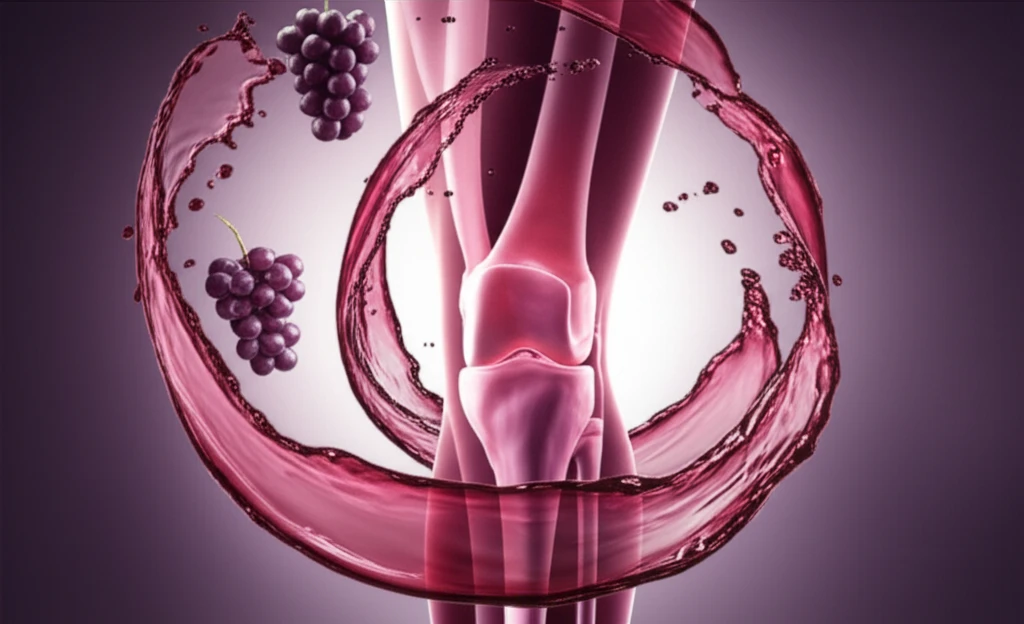
Resveratrol: Can This Antioxidant Ease Joint Pain?
"New research explores how resveratrol fights inflammation and protects cartilage in rabbit joints, potentially offering hope for osteoarthritis sufferers."
Joint pain can significantly impact daily life, and for those with conditions like osteoarthritis (OA), finding effective relief is a constant pursuit. While various treatments exist, research into natural compounds offers promising alternatives. Resveratrol, an antioxidant found in grapes, red wine, and certain berries, has been gaining attention for its potential anti-inflammatory and joint-protective properties.
A recent study investigated how resveratrol impacts cartilage cells, specifically focusing on its ability to combat nitric oxide (NO)-induced apoptosis—a process where cells are triggered to self-destruct due to inflammation. The study, conducted on rabbit articular chondrocytes (cartilage cells), sheds light on the underlying mechanisms through which resveratrol may alleviate joint pain and slow down cartilage degradation.
This article will explore the key findings of this research, breaking down the science in an accessible way to help you understand how resveratrol works at a cellular level to protect your joints. We'll delve into its impact on inflammation pathways and what this means for the future of joint health treatments.
How Resveratrol Protects Cartilage: The Science Explained

The study's core focus was to examine resveratrol's effect on nitric oxide (NO)-induced apoptosis in cartilage cells. Nitric oxide, while having some beneficial roles in the body, can become harmful in excess, contributing to inflammation and cartilage breakdown in conditions like OA. Researchers used sodium nitroprusside (SNP), an NO donor, to simulate inflammatory conditions in rabbit chondrocytes.
- Microscopic observation: Cartilage cells treated with resveratrol showed less cell death compared to those exposed to NO alone.
- MTT Assay: This test confirmed that resveratrol boosted cell survival in the presence of NO.
- FACS Analysis: Flow cytometry revealed a lower percentage of cells undergoing apoptosis when resveratrol was administered.
- DAPI Staining: This staining technique further validated that resveratrol prevented DNA fragmentation, a hallmark of apoptosis.
The Future of Resveratrol in Joint Health
This research provides compelling evidence that resveratrol can protect cartilage cells from inflammation-induced damage. By inhibiting the NF-κB pathway and reducing apoptosis, resveratrol offers a multi-faceted approach to supporting joint health.
While these findings are promising, it's important to remember that this study was conducted on rabbit cells in a laboratory setting. Further research, including human clinical trials, is needed to confirm these effects and determine the optimal dosage and delivery methods for resveratrol to benefit individuals with joint pain and osteoarthritis.
Nevertheless, this study adds to the growing body of evidence supporting the potential of resveratrol as a natural therapeutic agent for joint health. As research continues, we may see resveratrol playing an increasingly important role in managing joint pain and promoting long-term cartilage health.
